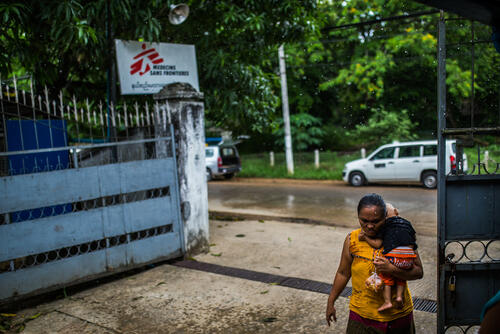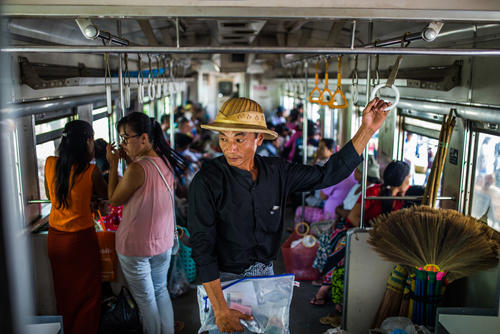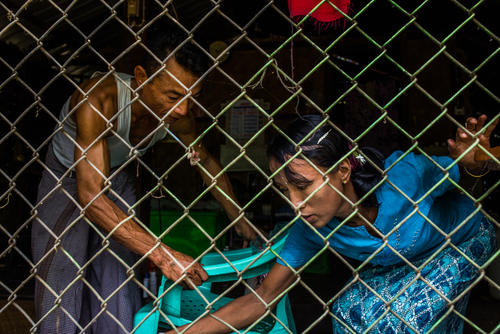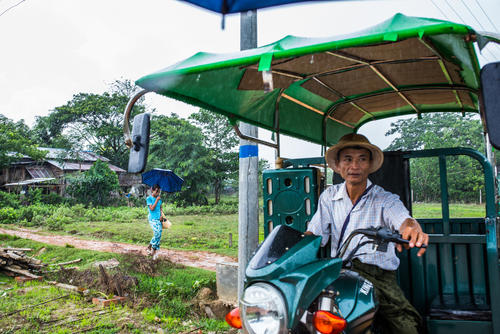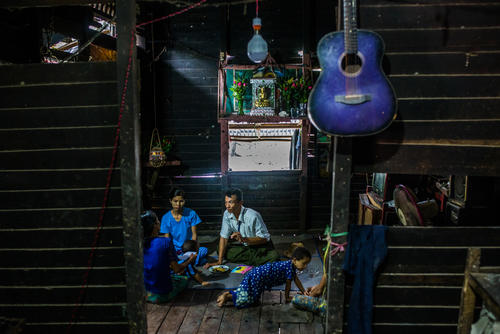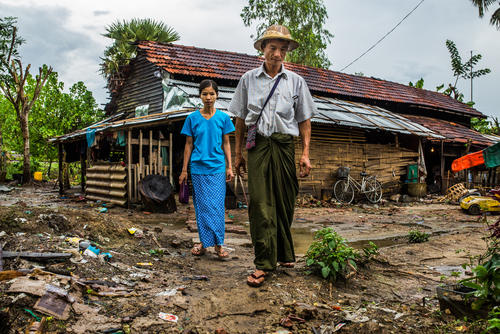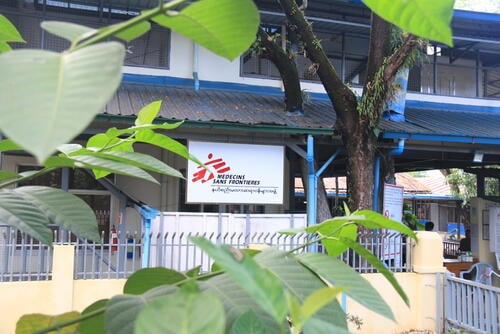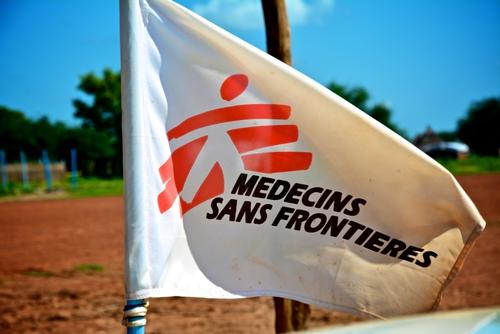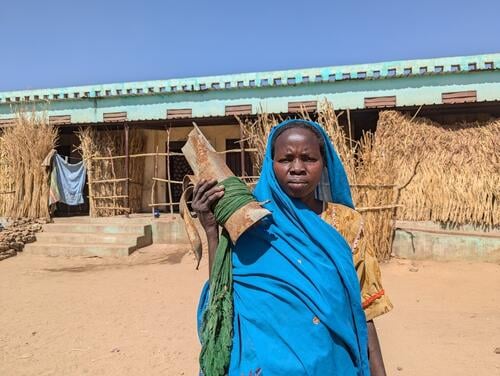After 26 years as one of Myanmar’s major treatment providers, Médecins Sans Frontières (MSF) has now fully handed over our HIV project in Yangon, the country's largest city, to the National AIDS Programme (NAP) under the Ministry of Health and Sports (MoHS).
MSF has worked in Myanmar since 1992 and was the first international NGO present in the country. In 1994, MSF began providing care for HIV/AIDS and health education in Yangon, as well as the screening and treatment of sexually transmitted diseases.
In 2002, MSF became the first provider of antiretroviral treatment (ARV) in the country and at one stage ran Myanmar’s largest HIV treatment programme. Together, the MSF Insein and Thaketa clinics treated over 17,000 patients, many of whom travelled from elsewhere in the country to access care.
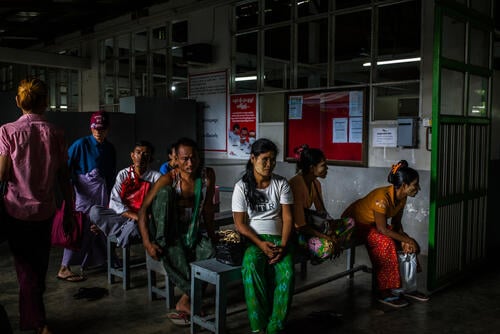
As part of MSF’s staggered handover process, the Insein clinic closed in June 2019 and the Thaketa clinic closed at the end of June 2020.
The milestone handover was possible because Myanmar’s NAP is now in a position to provide ARV treatment for people living with HIV. MSF made a significant contribution to the NAP decentralisation process, with dedicated staff continuing to support that process.
As the capacity of the NAP and National Tuberculosis Programme improved in recent years, MSF has transferred patients to the care of the NAP for treatment in clinics closer to their homes. Such decentralised models of care are vital to ensuring patients can access – and adhere to – their treatment.
“Before MSF arrived and began offering treatment for HIV-positive patients, life was hard,” says Zarni Aung, who worked as a peer group officer at the Thaketa clinic.
“People living with HIV were not treated as members of society,” says Aung. “Families rejected them and you couldn’t share food at the same table or go to a tea shop without being harassed and sometimes even attacked. At the clinics, we didn’t only receive medicine, but dignity as human beings.”
For Dr Soe Yadanar, a clinic manager who has worked with MSF’s HIV projects for 20 years, MSF’s person-centred approach was what made the clinics so special.
“Patients who were too sick to collect their medication were included through our home-based care model and would receive their medication and other support items, such as hygiene articles and food supplies, at home,” she says.
HIV patients also received treatment for opportunistic infections such as tuberculosis (TB), multidrug-resistant TB, pneumonia, hepatitis C and meningitis, all at the same clinic. Such integrated care made it easier for patients to stick with treatment, in turn helping prevent the spread of HIV and other illnesses. MSF continues to push for the adoption of integrated care by other HIV providers.
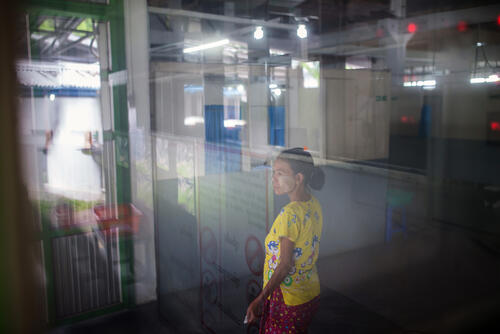
MSF was also the first organisation in Myanmar to incorporate psychosocial activities into HIV treatment, and has advocated for the integration of psychosocial services into the NAP model of care. Patients received individual and group counselling services in the pre- and post-diagnosis stages, while peer group meetings provided safe spaces for HIV/TB patients to connect, support and bond with other patients.
“Once I was diagnosed, all I wanted was to die. Only the staff’s encouragement changed my mind and I felt real warmth,” says U Tint Tun, who was a HIV patient with MSF for over 15 years.
While the MSF clinics have now closed, the peer groups have been so successful that patients have started independent groups themselves.
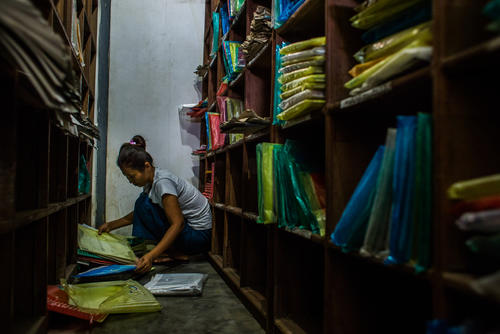
“The psychosocial activities have helped many patients regain mental strength and to believe in themselves, to support each other and become active and proud members of their respective communities,” says Zarni Aung.
Ko Kyaw Soe Oo was the last patient to receive treatment at the Thaketa clinic. A taxi driver, he had been a patient with MSF since 2011. “All the staff at the clinic are like my family, starting from the receptionist. They are the saviours of my life and I will remain forever grateful to them.”
MSF will continue working with the NAP to standardise improved models of treatment as it increases decentralised HIV care. MSF projects in other parts of the country (Shan, Kachin and Rakhine states, as well as Naga and Thaninthariyi region) continue their usual operations, and are likewise in the process of transferring their HIV patient cohorts to the NAP. Decentralisation is planned to be completed in 2023.



